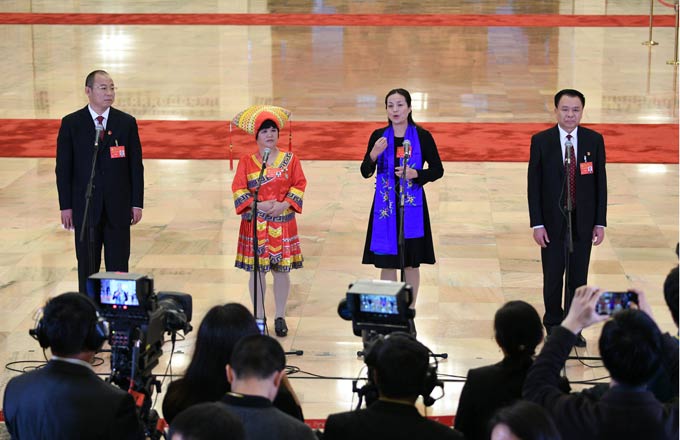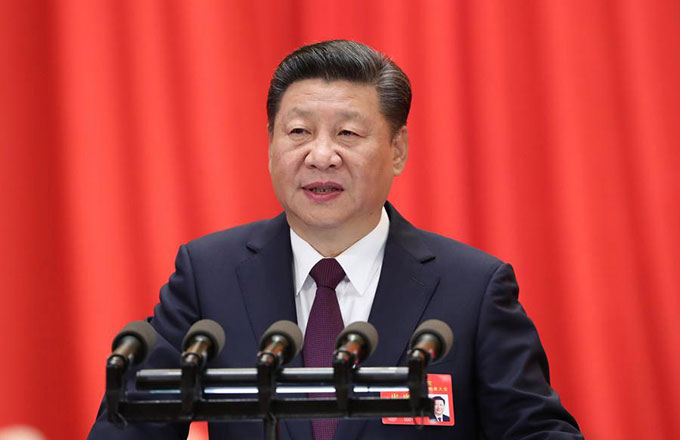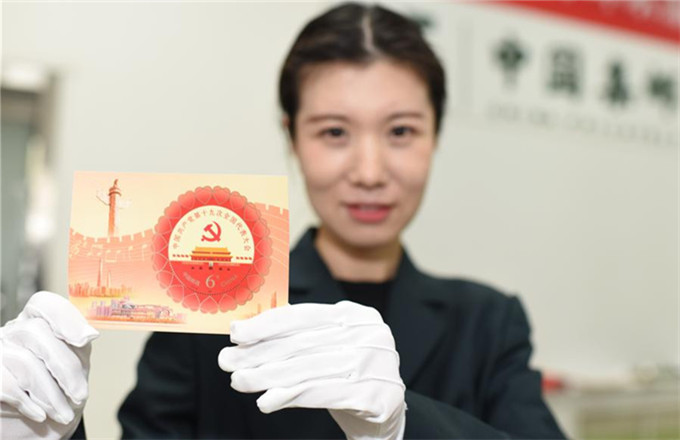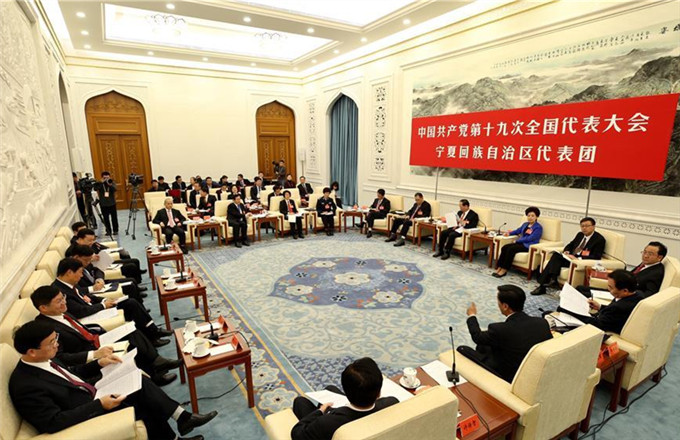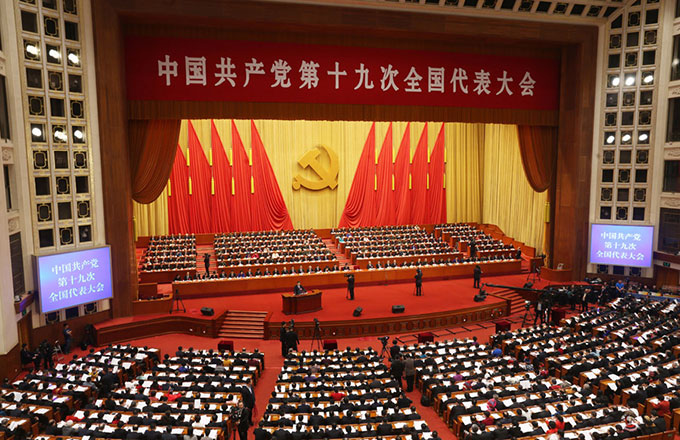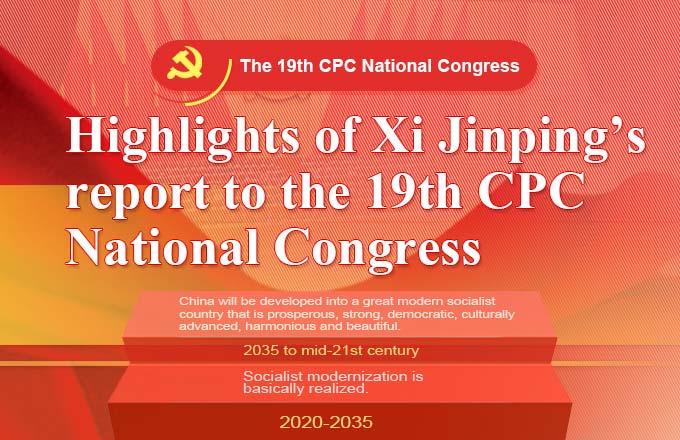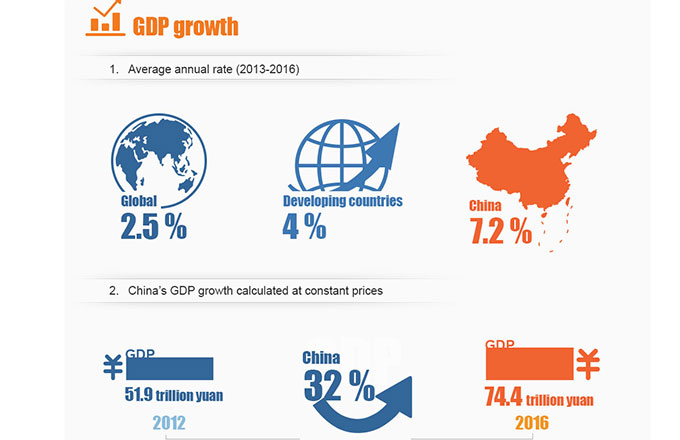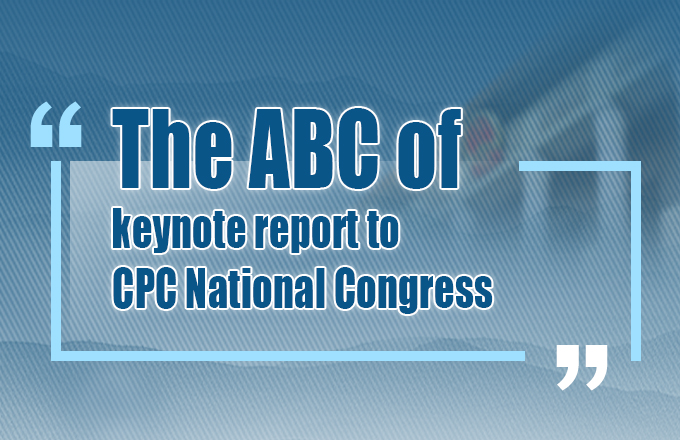CCDI continues corruption clampdown
|
 |
The nation's top anti-graft watchdog is determined to stamp out illegal activities among officials, as Zhang Yan reports.
For the past five years, the battle against corruption has been a top priority, with disciplinary watchdogs at all levels investigating and apprehending rogue Party officials.
Since the campaign was launched by President Xi Jinping in 2012, more than 280 officials at the ministerial and provincial levels, or higher, have been investigated over allegations of "serious violations of Party discipline", a common euphemism for corruption.
They include several powerful "tigers", such as former national security chief Zhou Yongkang and Su Rong, former vice-chairman of the National Committee of the Chinese People's Political Consultative Conference.
"No matter what their levels, officials involved in corruption will stand trial and receive judgment according to the law," said Yang Xiaodu, minister of supervision and deputy director of the Communist Party of China's Central Commission for Discipline Inspection, the top anti-graft watchdog.
Tighter supervision
The CCDI said it has developed effective procedures to tighten supervision within the CPC to ensure that members follow the rules, eliminate graft "at the roots" and tackle an issue that has a bearing on the future of both the Party and the nation.
During Xi's first term in office, the commission carried out 12 rounds of inspection into 277 Party organizations and bodies, achieving a full inspection of all Party organs.
"The inspections acted as a sharp sword for supervision within the Party, leading to more than 60 percent of the valuable clues we received about potential corruption," said Li Wanjun, a bureau-level inspector with the CCDI's central inspection team.
Official data shows that from late 2012 to the end of August more than 240,000 officials nationwide were accused of breaching the Party's frugality code. The commission has released a list of 167 typical offenses on its website.
One example occurred between 2014 and 2016, when Kong Lingbin, deputy director of the environmental protection bureau of the Ningxia Hui autonomous region, violated Party rules and accepted gifts and cash from subordinates valued at 50,000 yuan, ($7,630) as well as a refueling card for his car worth 5,000 yuan.
Kong was given a serious warning by the CPC and his illicit gains were confiscated.
Meanwhile, in February last year, Ai Geqing, a senior official at the public security bureau in Baoshan, Yunnan province, broke Party rules by accepting gifts and cash worth 29,530 yuan from 56 people. She received the same punishment as Kong.
"Our clampdown has gained crushing momentum and halted the spread of corruption," Yang said, adding that the task of supervising Party members and building a loyal, clean and responsible government will be arduous.
"We will never let up against graft, and we must especially stay alert to any election fraud during the Party's key meeting," he said, referring to the 19th National Congress of the CPC.
Learning from scandals
When he addressed a CCDI meeting earlier this year, President Xi said Party organizations at all levels must strengthen their management and strictly adhere to the rules to ensure healthy elections.
"Members who show excellent morality and ability should be chosen and promoted," he said.
The congress will see the election of the new leadership group and herald a major reshuffle at various levels of the CPC and government.
In a recent editorial, People's Daily, the Party's official newspaper, called for zero tolerance toward corruption during the elections. "Any malpractice, such as bribery and soliciting or buying votes, should be investigated and, if proved, severely punished," it said, adding that CPC members should draw lessons from recent political scandals that harmed the public interest and posed serious threats to social stability.
One example occurred in Liaoning province in 2013, when 523 of the 616 deputies who took part in elections for the provincial people's congress were suspected of offering bribes. They all resigned or were disqualified from taking their seats.
Overall, more than 950 officials were punished for being involved, according to a CCDI statement. Most received administrative punishments, while a number of senior provincial officials were charged with destroying the credibility of the election, abuse of power and bribery. They are awaiting sentencing.






